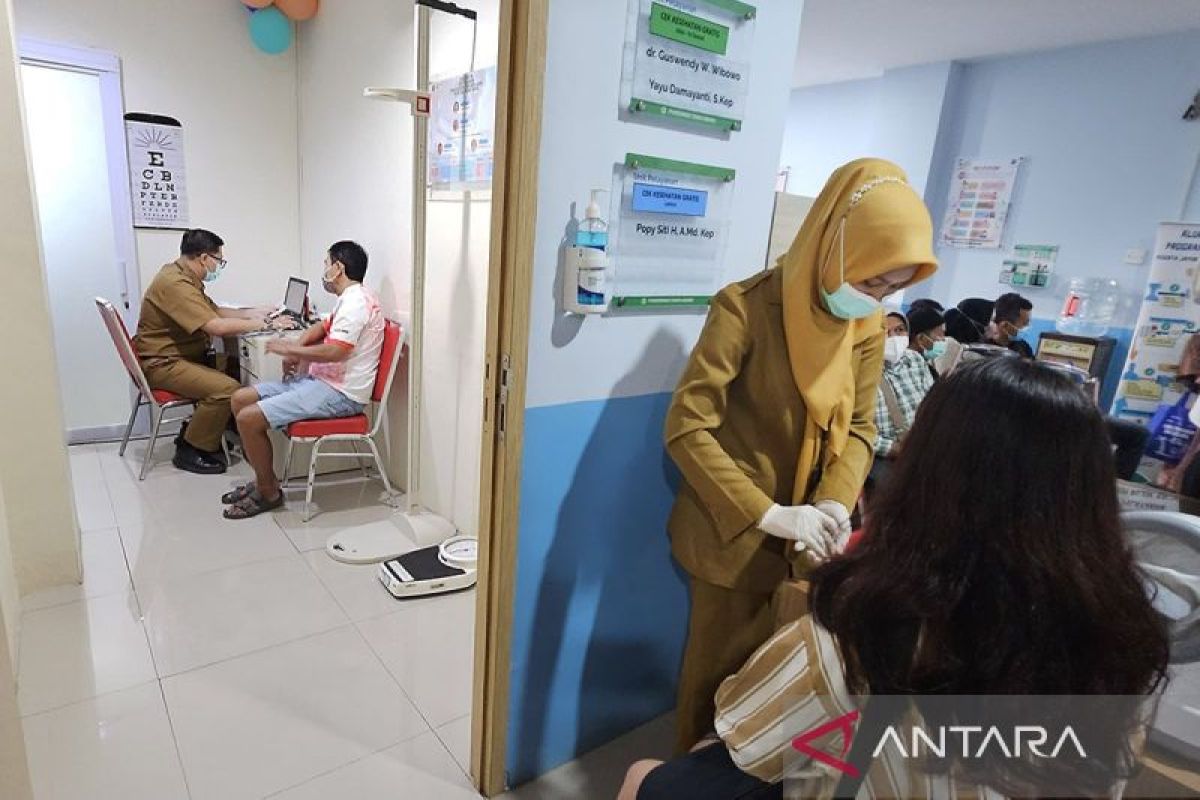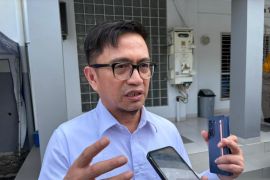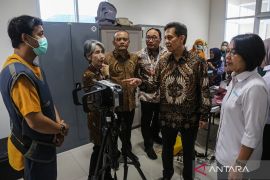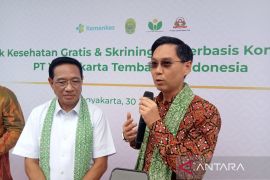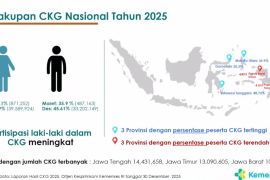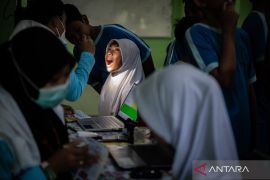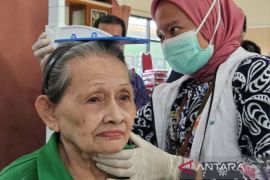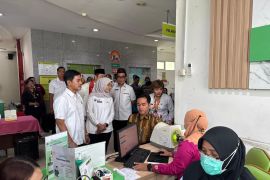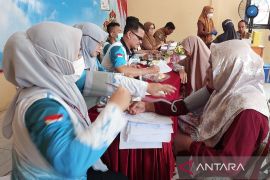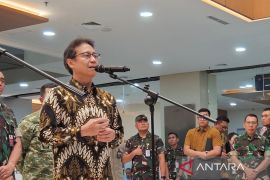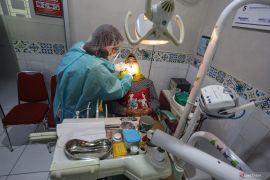Health and the economy are two interrelated sectors as healthy people are the foundation of high productivity, which eventually encourages sustainable economic growth.
The program will directly reduce the health burden costs of individuals, especially low-income people.
The Presidential Communication Office (PCO) has projected that participating in the government-provided free health screening can save every citizen up to Rp1 million (around US$61.17) in health screening costs.
Deputy I of Communication and Information Materials at the PCO Muhammad Isra Ramli noted that the value of the exact savings per person varies, considering that each participant receives special examination services based on the age and diseases that cause the most burden in each target age group.
However, in principle, it must be underlined that health spending is often one of the biggest components of households' budgets.
With the free health screening program, funds allocated for routine health checks or early disease detection can be diverted to other areas, such as education, nutritional fulfillment, or even micro-investment in the informal sector.
This will create a domino effect, improving the community's purchasing power and driving economic growth at the micro level.
Macroeconomic impact
The program's macroeconomic impact is also significant. Early detection through free health screening allows diseases to be treated way before they become more serious and costly.
The program's macroeconomic impact is also significant. Early detection through free health screening enables disease management, preventing conditions from worsening and requiring higher treatment costs.
For instance, early detection of diabetes or hypertension can prevent complications that require intensive and high-cost treatment.
This initiative will not only reduce the burden on the national health system, including national health insurance but also increase the productivity of workers.
Healthy workers tend to be more productive, have lower absence rates, and are able to work more productively. This will indirectly increase the national output and support the growth of the GDP.
However, the effectiveness of the free health screening program does not solely depend on its implementation. Adequate health infrastructure, equitable distribution of medical personnel, and an efficient data recording system are determining factors for the success of this program.
Without good infrastructure, this program will only optimally benefit a small number of people.
For example, remote areas in Eastern Indonesia often face challenges in terms of access to basic health facilities.
Hence, the free screening program must be accompanied by increasing health facilities and personnel in those areas.
Deputy Minister of Transmigration Viva Yoga Mauladi has also specifically stated that free health screening can be a priority program in remote areas, especially transmigration areas, considering their key role as national food production centers.
He expressed hope that, by making the health program a priority in transmigration areas, the quality of life of transmigrants in remote areas can be improved, enabling them to contribute to building the nation through food self-sufficiency.
An interesting case study can be seen in the implementation of similar programs in other countries.
In Thailand, for instance, the Universal Coverage Scheme (UCS) program, launched in 2002, provided affordable healthcare access to the entire population, demonstrating positive impacts on public health and reducing excessive health expenditure.
In the five years since the program was launched, Thailand recorded a significant reduction in poverty rates, although other economic factors also influenced the overall reduction.
Thailand's experience demonstrates that investing in public health is a long-term investment that bolsters the national economy's resilience and productivity.
However, Indonesia is facing different challenges. Its large population and wide geographical distribution require a more integrated approach.
One solution is to utilize digital technology to expand the reach of the free health screening program.
Telemedicine and health applications can reach people in remote areas, allowing them to receive basic health screenings without having to travel long distances to health facilities.
Collaboration
The use of big data in analyzing health screening results can also help the government in designing more targeted health policies.
In addition, this program can be expanded to include comprehensive health education elements. Health screening alone is insufficient if community members are not equipped with the knowledge to maintain their health independently.
Educational campaigns regarding healthy lifestyles, the importance of exercise, and a balanced diet must be part of this program. Thus, people would not only depend on free health services but also actively maintain their health.
Collaboration between the public and private sectors can support the continuity of this program in terms of funding. A public-private partnership scheme can be implemented to expand the scope of the services provided without placing an excessive burden on the state budget.
Private companies can be involved in providing facilities, technology, or also medical personnel as part of their corporate social responsibility.
This will not only help ease the burden on the government but also create synergies that benefit all parties.
In the long term, the free health screening program can contribute to the creation of a more productive society, lower poverty rates, and reduce social inequality.
However, this program's success depends heavily on the government's commitment to improving the quality of health services, expanding access, and ensuring that everyone receives the same benefits.
This program is an initial step towards a health system that is more inclusive and equitable.
With the right implementation and support from all stakeholders, the free health screening program can be a catalyst for a bigger economic transformation, with health no longer being a burden but an asset to bolster the foundation of the national economy.
Related news: Indonesia's free screening program helps improve public health: MPR
Related news: Regional health offices have vital role in free screening: ministry
Related news: Health screening to ensure medical record keeping: PCO
Translator: Hanni Sofia, Raka Adji
Editor: Azis Kurmala
Copyright © ANTARA 2025
